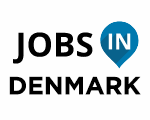As an article from the Wall Street Journal (WSJ) found, Danish workers are among the most easily laid off workers anywhere. Yet only 10% of workers express concern with job security, compared with nearly 40% in Germany and more than 60% in Spain. Ultimately, most Danes believe they can always find work. In the meantime, they will receive financial benefits that replace up to nine-tenths of their last wage, the highest level in Europe. The government will also assist the jobless by providing subsidized employment training for those moving into a different industries.
Moving to a new job has no effect on pension entitlements or earned holiday time, for example. The flexicurity model is the result of two decades worth of political reforms and collective bargaining.
Danish citizens change jobs more frequently than any workers in the developed world except Americans and Australians. An astounding 70% of employees from Denmark believe that it is good to change jobs every few years, while less than 30% of those from Austria, Germany or Poland share this view. That being said, finding a new job is not very difficult, proven by the fact that Denmark has cut its unemployment rate in half since the early 1990s, now reaching U.S-style levels of around five percent.
However, the WSJ article goes on to clarify that while flexicurity works in Denmark, it might not be as applicable in other countries. “Critics say the experiment might not be easy to replicate. For one thing, Denmark is small, with just 5.4 million people. And close-knit Scandinavian countries historically have had a higher tolerance for taxes. The system isn't cheap: Denmark spends about 4.4% of its GDP every year on supporting and re-training the jobless, the most expensive labor-market policy in the world.”
With regard to money and well-being, the Danes focus more on collectivism. The Danish word for collectivism is "jantelov," (pronounced YAN-tee-loav), or Jante Law. It roughly means that nobody is better than anyone else. This perfectly sums up the desire for people to help each other, at least in the workplace.


